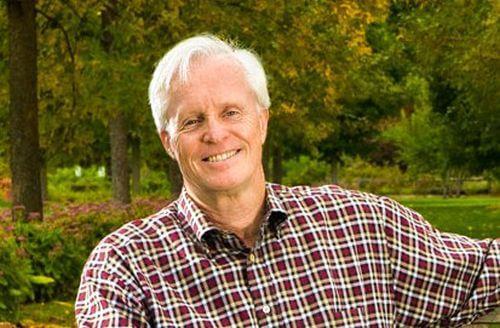The only energy source that we have complete control over is that of the human. Our ability to work, to draw sustenance from the lands around us comes from the tools we carry with us every day. The food we rely on comes from the accumulated knowledge of multiple generations, access to arable plots of land, and the strength of our backs. Only in the past five to six decades have we made a conscious effort to neglect our accumulated knowledge, sell our farms and watch the muscles whither from our shoulders. We have made this decision based on ease, and based on the assumption that the agricultural industry has our best interests in mind.
In order to reclaim control over our food production, to remove ourselves from a food supply chain stretched thinner and thinner by increased productive centralization, we need to relearn our lost knowledge, reclaim our lost farms and reform our lost muscles. Farmers, especially young farmers, who are given the space and the support necessary will see that farming can be profitable for the individual, the community and the environment. By giving these farmers the opportunity to use the land as a teaching tool, we are investing in our security. We will have a local source of food coming from farmers with reverence for their land and the community that gave them birth.
Fritz Schumacher believed that “we should be searching for policies to reconstruct rural culture, to open the land for the gainful occupation to larger numbers of people… and to orientate all our actions on the land towards the threefold ideal of health, beauty, and permanence.” Reconstructing rural culture will be done by communities that recognize the importance of the threefold ideal. It cannot be done by the farmers alone. Together an agricultural support structure can be created that provides needed inputs for the farmers and fresh, healthy, local food to the community.
 The Gardener’s Supply Company and the Intervale Foundation are working on putting these principles into practice. Started in 1983 by Will Raap, the Gardener’s Supply Company provides diverse earth-friendly products to gardeners nationwide. Raap has chosen to run this business by the principles found in the natural world, recycling the majority of the company’s assets back to the employees. He also hopes to promote an economic development strategy to help businesses serve local economies through a triple bottom line return on investment: environmental improvement, community development, and financial success.
The Gardener’s Supply Company and the Intervale Foundation are working on putting these principles into practice. Started in 1983 by Will Raap, the Gardener’s Supply Company provides diverse earth-friendly products to gardeners nationwide. Raap has chosen to run this business by the principles found in the natural world, recycling the majority of the company’s assets back to the employees. He also hopes to promote an economic development strategy to help businesses serve local economies through a triple bottom line return on investment: environmental improvement, community development, and financial success.
The Intervale Foundation was created to help small farmers enhance their ability to supply the local economy with food. Intervale is an area on the edge of Burlington, Vermont, formerly used as a dumping ground before being acquired by Raap and Gardener’s Supply. Their idea was to make this seven hundred acre plot of marginalized land into a community space where small local farmers could learn the skills necessary to provide their community with fresh local food. The farms program is a three-year incubator that gives farmers access to land, equipment, greenhouses, irrigation and storage facilities with the understanding that they will farm the land organically. After this period, they have the opportunity to become enterprise farmers on the Intervale, or expand out. So far six graduates have moved on to farms across Vermont.
In concurrence with the Farms program, the Intervale Foundation runs a number of other programs designed to get the community involved with its local landscape. They provide a composting location for 20.000 tons of waste each year. This compost is then sold to help cover the costs of running the organization. Healthy City is a project of the Foundation focused on incorporating at-risk youth in the entirety of the farm process. Intervale also realizes the importance of rehabilitating those areas affected by all forms of development by offering native tree and shrub seedlings and plants. These native species are grown for use in conservation efforts across the state.
Will Raap is doing so much to assure that the people of Burlington have access to nourishing food, a healthy environment and a vibrant community.
The Schumacher Center will be hosting Mr. Raap along with Richard Heinberg and Stacy Mitchell as a part of the 26th Annual E. F. Schumacher Lectures Series. This event will be held on October 28, 2006 at the First Congregational Church in Stockbridge, MA. Tickets are $20 for non-members and $15 for members/students/seniors.